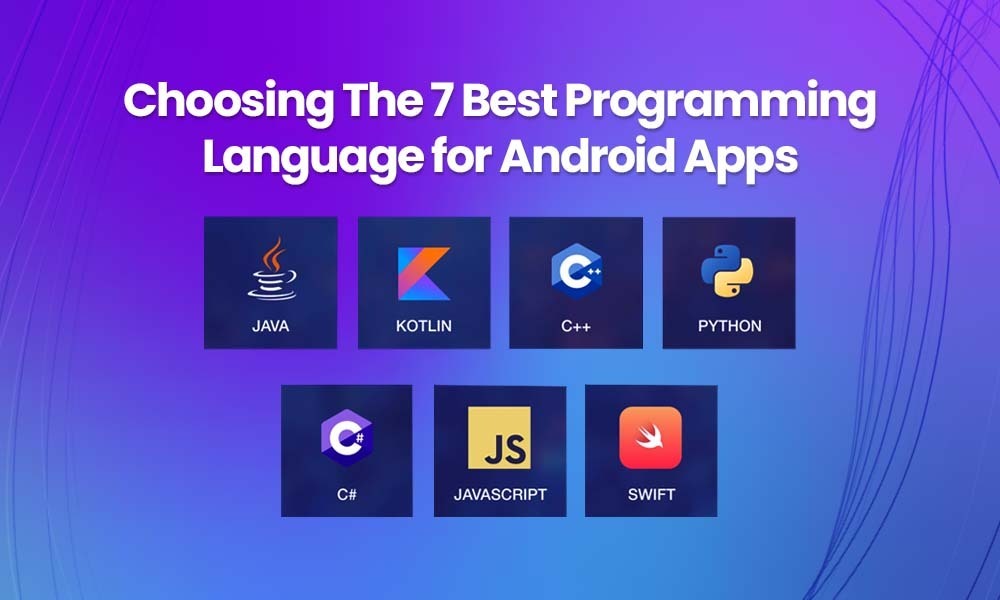
Let’s be honest. When you open the Play Store, it feels like there’s an app for everything: ordering groceries, booking a cab, or even reminding you to drink water. But have you ever stopped and thought about what’s behind all that? The truth is, every smooth, well-loved Android app has one thing in common: the right programming language.
Pick the right one, and you get speed, stability, and happy users. Pick the wrong one, and, well… you’ll probably see bad reviews faster than you’d like.
In 2025, Android is still the world’s most-used mobile system. That means competition is tough, and businesses can’t afford to mess up. So, if you’re a founder, or maybe talking with an android app development company, this guide will help you cut through the noise.
Let’s break down the seven best programming languages for Android apps in 2025—no jargon, just straight talk.
1. Java – The Old Reliable
Java is like that old pickup truck—sure, it’s not shiny, but it always starts. For years, it’s been the backbone of Android.
Banks, e-commerce apps, travel apps—you name it, Java is still running the show. It’s stable, secure, and backed by libraries that save tons of time.
Downside? It’s wordy. You’ll write more lines of code compared to newer languages. But if your project is big and needs to run without fail, Java still earns respect.
2. Kotlin – The Fan Favorite
If Java is the old guard, Kotlin is the rising star. Google straight-up recommends it, and developers love how clean it is.
Less code, fewer bugs, faster updates. That’s not hype—it’s real. For startups, that often means lower costs. For users, it means smoother apps.
Honestly, if you’re starting a brand-new Android project in 2025, Kotlin will probably be the first suggestion from any serious mobile app development company.
3. C++ – When Speed Matters
Now, let’s say you’re building a graphics-heavy game or a video editor. That’s where C++ flexes its muscles.
It’s not the easiest language, but the raw power is worth it. Many devs mix it with Java or Kotlin: C++ handles the heavy lifting while the other language takes care of everything else.
For high-performance apps, C++ is still a top choice.
Related Article: 10 Best Programming Languages for Mobile App Development
4. Python – Fast Prototyping Champ
Here’s something interesting: Python isn’t a native Android language. But thanks to frameworks like Kivy and BeeWare, it works.
Why would anyone do that? Speed of development. Startups especially love Python because it lets them test an idea without spending months coding.
Imagine you’re building a fitness tracker. With Python, you can create a working version fast, show it to investors, and only later switch to Kotlin if needed. That’s a smart move when you don’t want to waste the budget upfront.
5. C# – Write Once, Use Twice
C# comes in handy with Xamarin, which lets you share code across Android and iOS. That’s a big win for companies that don’t want two separate apps draining their resources.
It’s especially common for enterprise projects—like business dashboards or tools that tie into Microsoft products. If you’re already using Microsoft systems, C# makes life easier.
6. JavaScript – The Web Hero Turned Mobile Player
JavaScript isn’t just for websites anymore. Thanks to frameworks like React Native, you can build apps that run on both Android and iOS from a single codebase.
For businesses, that’s huge. One update goes live everywhere, saving time and money.
Take an online store, for example. With React Native, you don’t need two teams managing two apps. You push one change, and customers on both platforms see it instantly.
7. Swift – Not the Usual Suspect
Swift is Apple’s baby, but it’s worth mentioning. In some hybrid projects, developers are finding ways to bring Swift into Android too.
It’s not mainstream, but if you’ve got a team already deep into iOS and want to dip into Android, Swift can be a handy bridge. Clean, modern, and fast—just not the default choice here.
FAQs About Android App Development
Q1: What’s the best language for Android apps in 2025?
It depends. Kotlin is the favorite, but Java still leads for large, complex systems.
Q2: Can Python really build Android apps?
Yes, with tools like Kivy. It’s not perfect for production apps, but great for testing ideas quickly.
Q3: Should I hire a freelancer or a mobile app development company?
For small apps, a freelancer works fine. For long-term, complex apps, a company gives more reliability.
Q4: Do all new apps use Kotlin now?
Not all. Plenty of older apps stick with Java, and performance-heavy apps lean on C++.
Q5: Is React Native a good choice for business apps?
Yes—for most cases. But if you need something very complex or resource-heavy, native Kotlin/Java still wins.
Final Thoughts
Choosing a programming language for your Android app isn’t just a technical decision. It’s a business decision. The language you pick affects how fast you launch, how much you spend, and even how your users feel about your app.
In 2025, Kotlin and Java are still kings of the hill. But Python, JavaScript, C++, and even Swift have their roles depending on the project.
So, before you jump in, take a step back. Look at your goals, your budget, and your users. And if you’re unsure, the smartest move is to team up with an Android app development company that can guide you through the maze.
Because at the end of the day, the right language isn’t just about writing code. It’s about building an app that works, grows, and lasts.

